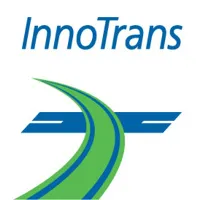
Latest NEWS
Shaping the Future of Transportation: Unveiling the Top 5 Key Trends at InnoTrans Berlin 2024

Railway Digitalization and Automation: Transforming the Future of Transportation at InnoTrans Berlin 2024
Railway Digitalization and Automation: Transforming the Future of Transportation at InnoTrans Berlin 2024

Digitalization has become a buzzword in almost every industry, and the railway sector is no exception. With the advent of advanced technologies such as artificial intelligence, big data analytics, and the Internet of Things, railways are becoming smarter and more efficient than ever before.
One of the key benefits of digitalization in the railway industry is improved safety. By leveraging real-time data and predictive analytics, railway operators can identify potential risks and take proactive measures to prevent accidents. For example, sensors installed on tracks can detect anomalies and alert operators to potential issues, allowing them to take immediate action.
Digitalization also enables railways to optimize their operations and improve efficiency. By collecting and analyzing data on train schedules, passenger flows, and maintenance needs, operators can make informed decisions to optimize routes, reduce delays, and enhance the overall passenger experience. This not only improves customer satisfaction but also reduces costs for railway companies.
Automation is another game-changer in the railway industry. With the development of autonomous trains and intelligent signaling systems, the need for human intervention is significantly reduced. This not only improves safety but also allows for increased capacity and faster travel times.
Autonomous trains are equipped with advanced sensors and control systems that enable them to navigate tracks, detect obstacles, and make decisions in real-time. This eliminates the risk of human error and allows for more precise and efficient train operations. Moreover, autonomous trains can communicate with each other and adjust their speed and distance to ensure smooth and safe operations.
Intelligent signaling systems, on the other hand, enable trains to communicate with the infrastructure and other trains, allowing for better coordination and optimization of train movements. This reduces the need for manual signaling and improves the overall efficiency of the railway network.
However, the implementation of digitalization and automation in the railway industry is not without challenges. One of the main challenges is the integration of new technologies with existing infrastructure. Retrofitting existing railway systems with digital and automated solutions can be complex and costly. Moreover, ensuring cybersecurity and data privacy is crucial to prevent potential cyber-attacks and protect sensitive information.
To address these challenges, collaboration between railway operators, technology providers, and policymakers is essential. InnoTrans Berlin 2024 provides a platform for industry stakeholders to come together, exchange ideas, and showcase the latest innovations in railway digitalization and automation.
In conclusion, railway digitalization and automation are transforming the future of transportation. By leveraging advanced technologies, railways are becoming safer, more efficient, and more sustainable. InnoTrans Berlin 2024 is at the forefront of this transformation, unveiling the top five key trends that are shaping the future of transportation. As the industry continues to evolve, it is crucial for stakeholders to embrace these trends and work together to build a smarter and more connected railway network.
Sustainable and Eco-friendly Transportation Solutions: Paving the Way for a Greener Future at InnoTrans Berlin 2024
In recent years, there has been a growing global concern about the impact of transportation on the environment. As the world becomes more aware of the need for sustainable and eco-friendly solutions, the transportation industry has been under pressure to find innovative ways to reduce its carbon footprint. At InnoTrans Berlin 2024, the world’s leading trade fair for transport technology, several key trends emerged that are shaping the future of sustainable transportation.
One of the top trends at InnoTrans Berlin 2024 was the development of electric vehicles. With advancements in battery technology, electric vehicles have become a viable alternative to traditional gasoline-powered cars. Not only do electric vehicles produce zero emissions, but they also offer a quieter and smoother ride. At the trade fair, several companies showcased their latest electric vehicle models, ranging from cars to buses and even trains. This trend highlights the industry’s commitment to reducing greenhouse gas emissions and transitioning to a greener future.
Another key trend at InnoTrans Berlin 2024 was the integration of renewable energy sources into transportation infrastructure. Many companies showcased innovative solutions that harness solar and wind power to generate electricity for charging stations and powering vehicles. By utilizing renewable energy, transportation becomes more sustainable and less reliant on fossil fuels. This trend not only reduces carbon emissions but also promotes energy independence and resilience.
In addition to electric vehicles and renewable energy, the trade fair also highlighted the importance of smart and connected transportation systems. With the advent of the Internet of Things (IoT), vehicles can now communicate with each other and with infrastructure, leading to more efficient and safer transportation. At InnoTrans Berlin 2024, companies showcased technologies such as vehicle-to-vehicle communication, intelligent traffic management systems, and autonomous vehicles. These innovations have the potential to revolutionize the way we travel, making transportation more sustainable, efficient, and convenient.
Furthermore, InnoTrans Berlin 2024 emphasized the need for multimodal transportation solutions. Instead of relying solely on cars, companies showcased integrated transportation systems that combine various modes of transportation, such as trains, buses, bicycles, and even scooters. By promoting multimodal transportation, cities can reduce congestion, improve air quality, and provide more accessible and affordable options for commuters. This trend aligns with the growing interest in urban mobility and the need to create livable and sustainable cities.
Lastly, InnoTrans Berlin 2024 highlighted the importance of data-driven decision-making in transportation planning and operations. With the abundance of data available, companies showcased advanced analytics and predictive modeling tools that can optimize routes, reduce energy consumption, and improve overall efficiency. By harnessing the power of data, transportation systems can become more sustainable and responsive to the needs of commuters.
In conclusion, InnoTrans Berlin 2024 unveiled several key trends that are shaping the future of sustainable and eco-friendly transportation. From electric vehicles and renewable energy to smart and connected systems, the industry is embracing innovative solutions to reduce its environmental impact. By promoting multimodal transportation and utilizing data-driven decision-making, transportation systems can become more efficient, accessible, and sustainable. As the world continues to prioritize sustainability, events like InnoTrans Berlin play a crucial role in showcasing the latest advancements and inspiring collaboration towards a greener future.
High-Speed Rail and Maglev Technologies: Revolutionizing Transportation Efficiency at InnoTrans Berlin 2024
Shaping the Future of Transportation: Unveiling the Top 5 Key Trends at InnoTrans Berlin 2024
InnoTrans Berlin 2024, the world’s leading trade fair for transport technology, has once again showcased the latest innovations and trends that are shaping the future of transportation. Among the top trends unveiled at the event, high-speed rail and Maglev technologies have emerged as key players in revolutionizing transportation efficiency.
High-speed rail has long been recognized as a game-changer in the transportation industry. With its ability to transport passengers at speeds exceeding 300 kilometers per hour, high-speed rail offers a faster and more efficient alternative to traditional modes of transportation. At InnoTrans Berlin 2024, several advancements in high-speed rail technology were showcased, including improved aerodynamics, lighter materials, and enhanced safety features.
One of the most notable developments in high-speed rail technology is the introduction of magnetic levitation, or Maglev, trains. Unlike traditional trains that rely on wheels and tracks, Maglev trains use magnetic forces to levitate and propel themselves forward. This revolutionary technology eliminates the friction between the train and the tracks, allowing for even higher speeds and smoother rides.
At InnoTrans Berlin 2024, Maglev technologies took center stage with the unveiling of the latest prototypes and concepts. These trains, powered by superconducting magnets, can reach speeds of up to 600 kilometers per hour, making them the fastest mode of transportation available. With their ability to travel at such high speeds, Maglev trains have the potential to significantly reduce travel times and increase overall transportation efficiency.
In addition to speed, Maglev trains also offer other advantages over traditional high-speed rail systems. The absence of wheels and tracks means that maintenance costs are significantly reduced, as there is less wear and tear on the infrastructure. Furthermore, the lack of friction results in a quieter and more comfortable ride for passengers.
Another key trend in high-speed rail and Maglev technologies is the focus on sustainability. As the world becomes increasingly aware of the environmental impact of transportation, there is a growing demand for greener alternatives. At InnoTrans Berlin 2024, several companies showcased their efforts to develop high-speed rail and Maglev systems that are powered by renewable energy sources, such as solar and wind.
These sustainable transportation solutions not only reduce carbon emissions but also contribute to the overall goal of creating a more sustainable and eco-friendly future. By combining high-speed rail and Maglev technologies with renewable energy sources, transportation becomes not only faster and more efficient but also more environmentally friendly.
In conclusion, high-speed rail and Maglev technologies are revolutionizing transportation efficiency at InnoTrans Berlin 2024. With their ability to transport passengers at unprecedented speeds, these technologies offer a faster and more efficient alternative to traditional modes of transportation. The introduction of Maglev trains, in particular, has taken transportation to new heights, with speeds reaching up to 600 kilometers per hour. Furthermore, the focus on sustainability has led to the development of high-speed rail and Maglev systems that are powered by renewable energy sources. As we look to the future, it is clear that high-speed rail and Maglev technologies will continue to shape the future of transportation, offering faster, more efficient, and more sustainable alternatives for travelers around the world.
Urban Mobility and Smart City Integration: Creating Seamless Transportation Systems at InnoTrans Berlin 2024
InnoTrans Berlin 2024, the world’s leading trade fair for transport technology, has once again brought together industry experts, innovators, and policymakers to discuss the future of transportation. Among the many topics explored at the event, urban mobility and smart city integration emerged as key areas of focus. As cities around the world grapple with increasing congestion and environmental concerns, finding innovative solutions to create seamless transportation systems has become imperative.
One of the top trends unveiled at InnoTrans Berlin 2024 is the integration of various modes of transportation into a single, interconnected network. This means that commuters will be able to seamlessly switch between different modes of transport, such as buses, trains, and bicycles, using a single ticket or app. This integration not only simplifies the commuting experience but also encourages the use of public transportation, reducing the number of private vehicles on the road and alleviating congestion.
Another trend highlighted at the event is the rise of electric and autonomous vehicles. With the increasing focus on sustainability and reducing carbon emissions, electric vehicles have gained significant traction in recent years. InnoTrans Berlin 2024 showcased the latest advancements in electric vehicle technology, including longer battery life, faster charging, and improved infrastructure. Additionally, autonomous vehicles, which have the potential to revolutionize urban mobility, were also a major highlight. These vehicles, equipped with advanced sensors and artificial intelligence, can navigate through traffic, pick up passengers, and drop them off at their destinations without human intervention.
In line with the concept of smart cities, the integration of data and technology was another key trend discussed at InnoTrans Berlin 2024. By harnessing the power of data, cities can optimize transportation systems, reduce congestion, and improve overall efficiency. For example, real-time data on traffic flow can be used to dynamically adjust traffic signals, ensuring smoother traffic movement. Additionally, data can also be used to provide commuters with personalized travel information, such as the fastest route or the least crowded mode of transport, enhancing the overall commuting experience.
Furthermore, the concept of Mobility as a Service (MaaS) was also a prominent topic at the event. MaaS aims to provide commuters with a seamless and integrated transportation experience by combining various modes of transport into a single platform. Through a single app, users can plan their journeys, book tickets, and pay for their trips across different modes of transport. This not only simplifies the process for commuters but also encourages the use of public transportation by providing a convenient alternative to private vehicles.
Lastly, the importance of sustainability and environmental considerations in transportation planning was emphasized at InnoTrans Berlin 2024. As cities strive to reduce their carbon footprint, the focus is shifting towards greener and more sustainable modes of transport. This includes promoting cycling and walking infrastructure, investing in electric and hydrogen-powered vehicles, and integrating renewable energy sources into transportation systems. By prioritizing sustainability, cities can create healthier and more livable environments for their residents.
In conclusion, urban mobility and smart city integration were key areas of focus at InnoTrans Berlin 2024. The top trends unveiled at the event highlighted the importance of creating seamless transportation systems that integrate various modes of transport, embrace electric and autonomous vehicles, harness the power of data and technology, promote Mobility as a Service, and prioritize sustainability. By embracing these trends, cities can shape the future of transportation and create more efficient, sustainable, and livable urban environments.
Innovations in Rolling Stock and Infrastructure: Enhancing Safety and Efficiency at InnoTrans Berlin 2024
Innovations in Rolling Stock and Infrastructure: Enhancing Safety and Efficiency at InnoTrans Berlin 2024
The future of transportation is rapidly evolving, and nowhere is this more evident than at InnoTrans Berlin 2024. This prestigious event brings together industry leaders, innovators, and experts to showcase the latest trends and advancements in the transportation sector. Among the many exciting developments, innovations in rolling stock and infrastructure are taking center stage, with a focus on enhancing safety and efficiency.
One of the key trends unveiled at InnoTrans Berlin 2024 is the integration of artificial intelligence (AI) in rolling stock. AI has the potential to revolutionize the way trains operate, making them smarter and more efficient. By analyzing vast amounts of data in real-time, AI-powered systems can optimize train schedules, predict maintenance needs, and even detect potential safety hazards. This not only improves the overall performance of the rolling stock but also enhances passenger safety and comfort.
Another significant trend is the development of autonomous trains. While self-driving cars have been making headlines for years, autonomous trains are now becoming a reality. InnoTrans Berlin 2024 showcases cutting-edge technologies that enable trains to operate without human intervention. These autonomous systems rely on a combination of sensors, AI algorithms, and advanced control systems to navigate tracks, make decisions, and ensure safe operations. The introduction of autonomous trains has the potential to increase capacity, reduce delays, and improve energy efficiency.
In addition to AI and autonomous technologies, InnoTrans Berlin 2024 also highlights advancements in energy-efficient rolling stock. With the growing concern over climate change and the need to reduce carbon emissions, the transportation industry is actively seeking ways to make trains more environmentally friendly. This includes the development of hybrid and electric trains that rely on renewable energy sources. These trains not only reduce greenhouse gas emissions but also offer quieter and smoother rides for passengers.
Furthermore, InnoTrans Berlin 2024 showcases innovations in infrastructure that aim to enhance safety and efficiency. One such development is the implementation of intelligent signaling systems. These systems use advanced sensors and communication technologies to provide real-time information about train movements, track conditions, and potential hazards. By improving the accuracy and reliability of signaling, intelligent systems can reduce the risk of accidents and optimize train operations.
Another notable trend is the integration of smart platforms for seamless passenger experiences. InnoTrans Berlin 2024 presents innovative solutions that enable passengers to have a more convenient and personalized journey. These platforms leverage technologies such as mobile apps, contactless payment systems, and real-time information updates to streamline ticketing, boarding, and navigation processes. By simplifying the passenger experience, these smart platforms not only improve customer satisfaction but also contribute to overall efficiency.
In conclusion, InnoTrans Berlin 2024 is a platform for unveiling the top trends in rolling stock and infrastructure that are shaping the future of transportation. From the integration of AI in rolling stock to the development of autonomous trains, these innovations are revolutionizing the industry. Additionally, advancements in energy-efficient rolling stock and intelligent infrastructure are enhancing safety and efficiency. As the transportation sector continues to evolve, events like InnoTrans Berlin provide a glimpse into the exciting possibilities that lie ahead.


